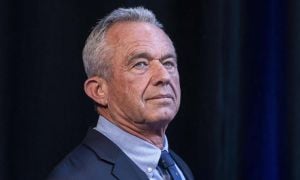The COP29 Climate Summit is currently underway in Baku, Azerbaijan, with tensions and stakes at their highest as climate negotiators from around the world push for substantive breakthroughs. This pivotal gathering is focused on establishing financial commitments from wealthier nations to help developing countries fight climate change and adapt to its severe impacts. Though ambitions run high, challenges loom large, and the call for action is urgent.
During the summit, Simon Stiell, the United Nations Climate Change executive secretary, made urgent remarks urging countries to "cut the theatrics and get down to real business." With funding urgently needed for vulnerable nations, he expressed frustration at the time lost to political standoffs and excessive posturing. Stiell's sentiments resonate deeply with many who believe the climate crisis requires straightforward collaboration rather than gamesmanship.
Negotiations have been hindered by disagreements over how to effectively channel at least $1 trillion per year to developing countries, which desperately need this support to transition from fossil fuels and address climate-induced disasters. Reports indicate disparities between developing nations' demands and the hesitance of wealthier countries to make specific financial commitments. A coalition of developing nations has suggested the required sum at $1.3 trillion, yet developed nations have yet to provide any concrete figure.
The urgency of financial backing for developing countries cannot be overstated. Many are still reeling from the devastating consequences of climate change, such as the recent flooding events seen across continents. Wopke Hoekstra, the EU's climate commissioner, reminded attendees of the political realities: "The cost of action today is much lower than the cost of inaction," he remarked, emphasizing the financial and social ramifications of failing to address climate change effectively.
The COP29 president, Mukhtar Babayev, also addressed the pressing need for politicians to engage constructively and courageously to reach agreements. He declared, "Politicians have the power to reach a fair and ambitious deal. They must deliver and engage immediately and constructively" during his press conference.
Further complicational concerns include the contributions of higher-emission countries. Activists and representatives from developing nations echoed similar sentiments, urging wealthier countries to take responsibility for their historical emissions. The calls highlight the moral obligation of those nations to assist those suffering the most, particularly when many of these poorer countries contribute the least to global warming.
Beyond the immediate need for financing, there's also the challenge of ensuring these funds are allocated judiciously. The structure of any potential deal is intrinsically linked to who can access funds, how quickly they become available, and the specific conditions tied to their use. Chris Bowen, Australia’s climate and energy minister, likened the process to solving "a four-dimensional jigsaw puzzle"—indicating the complexity and the number of stakeholders involved.
Influential voices at COP29 are also raising concerns about how the issue of financing is being framed. Critics argue against attempts to shift more responsibility onto developing nations to contribute financially to climate action, which would likely hinder their progress rather than help. Teresa Anderson, Global Lead on Climate Justice at ActionAid International, voiced skepticism about the true intentions behind calls for greater responsibility among these countries, asserting they could serve merely as distractions from rich countries' failures to meet their commitments.
Another angle of the discussions includes the roles of the private sector and innovative financing solutions. Proposals for wealth taxes and carbon levies are among the creative suggestions being explored to generate revenue for climate adaptation and mitigation projects, particularly for the most vulnerable nations.
Negotiators remain resolved to find common ground amid the hurdles, with commitments made toward assembling new funding sources and increasing existing ones. Discussions continue, but as the days pass, the urgency makes the stakes of political compromises feel even heavier.
With the G20 summit occurring concurrently, world leaders have their hands full, but the outcome of the COP29 talks could significantly impact future climate policy. The conversation around climate finance will be pivotal as the world grapples with the mounting crisis and seeks sustained commitments to combat it through collective action.
With the deadline looming, hopes remain for transformative agreements to emerge from this year’s COP29 discussions—a chance to reshape the financial commitments necessary to safeguard the future of vulnerable nations and, by extension, the planet.



